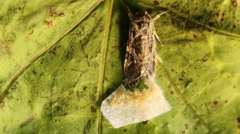On February 17, Harrison died peacefully in his sleep at a nursing home in New South Wales, leaving behind a legacy that will be remembered for generations. Often referred to as "the man with the golden arm," Harrison's journey as a blood donor began after he himself received transfusions during major chest surgery at the age of 14. Motivated to give back, he started donating plasma at 18, sustaining a remarkable commitment to bi-weekly donations until he turned 81.
Harrison's rare blood type enabled the production of medications administered to pregnant mothers at risk of Hemolytic Disease of the Foetus and Newborn (HDFN), a condition that can cause severe complications to unborn babies if the mother's blood is incompatible. His commitment helped to significantly reduce infant mortality rates; prior to the introduction of Anti-D therapies in the mid-1960s, up to 50% of HDFN-affected infants would not survive.
His daughter, Tracey Mellowship, revealed her father’s immense pride in being able to save lives, adding, “He always said it does not hurt, and the life you save could be your own.” Harrison’s legacy continues through his family, with several loved ones having benefited from the protection offered by Anti-D injections.
Although only around 200 people in Australia are currently able to donate Anti-D plasma, these individuals collectively assist an estimated 45,000 mothers and their infants each year, according to the Australian Red Cross Blood Service, also known as Lifeblood. In light of Harrison's passing, Lifeblood is actively pursuing research initiatives alongside the Walter and Eliza Hall Institute of Medical Research, with hopes of developing lab-grown Anti-D antibodies for broader global use.
David Irving, Lifeblood's research director, emphasized the importance of this endeavor, citing the ongoing challenges in maintaining a steady supply of qualified donors who can consistently produce the necessary antibodies. As the world reflects on Harrison's profound impact, the drive to innovate blood therapy for future generations continues, honoring his memory and the countless lives he’s saved.
Harrison's rare blood type enabled the production of medications administered to pregnant mothers at risk of Hemolytic Disease of the Foetus and Newborn (HDFN), a condition that can cause severe complications to unborn babies if the mother's blood is incompatible. His commitment helped to significantly reduce infant mortality rates; prior to the introduction of Anti-D therapies in the mid-1960s, up to 50% of HDFN-affected infants would not survive.
His daughter, Tracey Mellowship, revealed her father’s immense pride in being able to save lives, adding, “He always said it does not hurt, and the life you save could be your own.” Harrison’s legacy continues through his family, with several loved ones having benefited from the protection offered by Anti-D injections.
Although only around 200 people in Australia are currently able to donate Anti-D plasma, these individuals collectively assist an estimated 45,000 mothers and their infants each year, according to the Australian Red Cross Blood Service, also known as Lifeblood. In light of Harrison's passing, Lifeblood is actively pursuing research initiatives alongside the Walter and Eliza Hall Institute of Medical Research, with hopes of developing lab-grown Anti-D antibodies for broader global use.
David Irving, Lifeblood's research director, emphasized the importance of this endeavor, citing the ongoing challenges in maintaining a steady supply of qualified donors who can consistently produce the necessary antibodies. As the world reflects on Harrison's profound impact, the drive to innovate blood therapy for future generations continues, honoring his memory and the countless lives he’s saved.





















